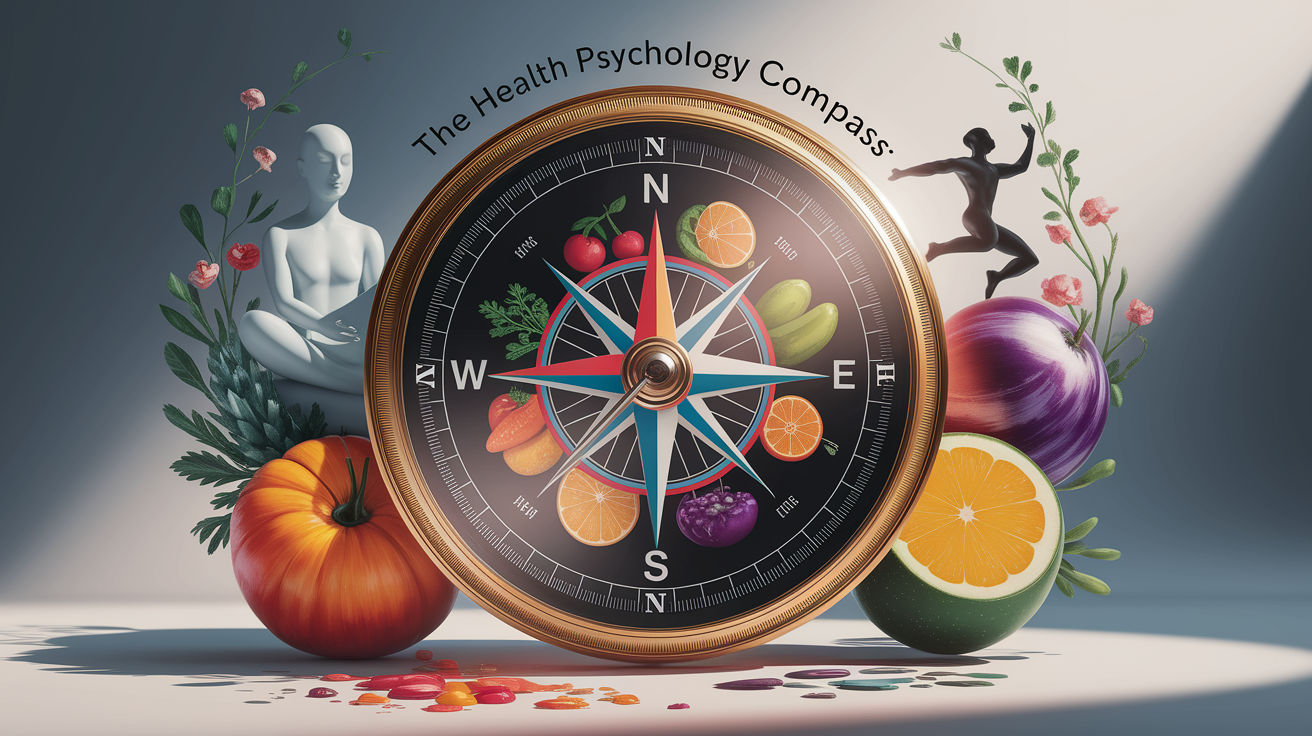Mind Meets Body: A Practical Overview of Health Psychology
In the vast landscape of human wellness, a critical bridge exists between our mental state and our physical condition. This is the domain of health psychology, a fascinating and vital field dedicated to understanding the intricate dance between mind and body. It moves beyond the traditional separation of physical and mental health, recognizing them as two sides of the same coin. This article provides a comprehensive overview of health psychology, exploring its core principles, practical applications, and how it empowers individuals to take control of their well-being.
The Health Psychology Compass: Navigating Mind-Body Connections
At its heart, health psychology is a specialized subfield of psychology that examines the interplay of biological, social, and psychological factors in health and illness. It’s built on the premise that our thoughts, feelings, and behaviors are not just reactions to our health status but are powerful determinants of it. Health psychologists seek to understand why we make the health choices we do, how we adjust to illness, and how we can prevent disease and promote wellness. They explore the intricate link between human behavior, mental processes, and health, providing a roadmap for navigating the journey to a healthier life.

This discipline offers answers to critical questions: Why do some people diligently follow medical advice while others struggle with patient adherence? How does chronic stress lead to tangible physical ailments like heart disease? What psychological tools can help a person cope with a cancer diagnosis? By investigating these connections, health psychology provides a scientific foundation for a more holistic and effective approach to healthcare.
Core Concepts in Health Psychology
To understand the practice of health psychology, one must first grasp its foundational concepts. These principles form the theoretical bedrock upon which interventions and research are built.
The Biopsychosocial Model
The cornerstone of health psychology is the biopsychosocial model. This framework posits that health and illness are the products of a complex interaction between three major factors:
- Biological Factors: This includes an individual’s genetic predispositions, physiological processes, and neurochemistry. For example, a genetic vulnerability to high blood pressure is a biological factor.
- Psychological Factors: These encompass an individual’s beliefs, attitudes, emotions, coping styles, and health behaviors. A person’s belief in their ability to quit smoking (self-efficacy) or their tendency towards optimism are psychological factors. The way psychological factors shape health is a central area of study.
- Social Factors: This dimension includes social norms, cultural background, socioeconomic status, and the strength of one’s social support systems. Having a supportive family during a period of illness is a powerful social factor that influences recovery.
By exploring these interconnected factors, health psychologists gain a comprehensive understanding of an individual’s health profile, moving far beyond a simple diagnosis of disease.

Stress and Coping
One of the most researched areas in health psychology is the study of stress and coping. It’s now widely understood how chronic stress affects physical health and well-being, contributing to everything from weakened immune responses to cardiovascular disease. The field of psychoneuroimmunology specifically studies these pathways, revealing how psychological processes like stress can impact the nervous and immune systems. Health psychology not only identifies the sources and effects of stress but also develops and validates effective stress reduction techniques and coping mechanisms for illness, helping individuals build resilience. Exploring the science of emotions and well-being is crucial for developing these strategies.
Health Behaviors and Behavior Change
Our daily choices—what we eat, how much we move, whether we smoke or drink—are major drivers of long-term health outcomes. Health psychology delves into the science of health behaviors, using behavior change theory to promote healthier lifestyles. It examines the psychological roots of unhealthy habits and develops interventions to foster positive lifestyle changes. This work is critical for public health psychology and creating effective prevention programs aimed at improving quality of life on a large scale.
Real-World Applications
The theories of health psychology are not confined to academic journals; they have powerful, real-world applications that improve and save lives. This branch of behavioral medicine focuses on practical interventions to achieve better health outcomes.

Chronic Illness and Pain Management
For millions living with conditions like diabetes, arthritis, or heart disease, health psychology offers vital support. Health psychologists help patients manage chronic diseases by addressing the psychological and behavioral aspects of their conditions. Common psychological interventions for chronic conditions include:
- Cognitive Behavioral Therapy (CBT): CBT helps individuals identify and change negative thought patterns and behaviors that can exacerbate symptoms or hinder treatment adherence. It is highly effective for health anxiety and managing the emotional toll of illness.
- Pain Management: For chronic pain, psychological techniques can be as important as medication. Health psychologists teach mindfulness, relaxation techniques, and coping strategies that can alter an individual’s perception of pain and improve daily functioning.
- Improving Adherence: Helping patients stick to complex medication schedules and lifestyle changes is a key role. Psychologists work to understand barriers to adherence and develop personalized strategies for success. The principles of neuroplasticity and brain health are relevant here, as sustained behavioral changes can rewire the brain’s approach to habits and self-regulation.
Health Promotion and Disease Prevention
Perhaps the most impactful application of health psychology is in health promotion and disease prevention. Rather than waiting to treat illness, health psychologists work to prevent it. They design large-scale public health campaigns to discourage smoking, promote vaccination, and encourage healthy eating. They also develop wellness programs for schools and workplaces, intervening in issues like sedentary lifestyles and providing tools for stress management long before they escalate into chronic problems.
The Role of Health Psychologists
So, what does a health psychologist actually do? These highly trained professionals work in a variety of settings, including hospitals, primary care clinics, universities, and public health agencies. Their roles are diverse but share a common goal: integrating psychological care with physical healthcare.

According to UChicago Medicine, a health psychologist’s responsibilities can include:
- Coping with a New Diagnosis: Helping patients and families process the emotional and practical challenges of a new medical diagnosis, like cancer or multiple sclerosis.
- Managing Physical Symptoms: Providing non-pharmacological interventions to help manage symptoms like fatigue, nausea, or insomnia that often accompany medical conditions or treatments.
- Improving Lifestyle Behaviors: Working one-on-one or in groups to guide patients through lifestyle changes, such as weight management or smoking cessation.
- Enhancing Communication: Improving patient-provider communication by coaching patients on how to articulate their needs and helping medical teams understand the psychosocial aspects of a patient’s case. They may use trauma-informed care and its principles to create a safer and more effective therapeutic environment.
These professionals support patients with a wide range of medical concerns through individual or group psychotherapy sessions, making them integral members of a modern, integrative health team.
Empowering Your Health Journey
The insights of health psychology are not just for clinicians; they are for everyone. You can apply its principles to improve your own well-being and take a more active role in your health.

- Acknowledge Your Mind-Body Connection: Pay attention to how your stress levels affect your sleep, digestion, or energy. Notice how your mood influences your food choices. This self-awareness is the first step toward making conscious, healthier decisions.
- Build Your Coping Toolkit: Don’t wait for a crisis to learn stress management. Proactively practice stress reduction techniques like deep breathing, mindfulness meditation, or regular physical activity. These are skills that build resilience over time.
- Set SMART Health Goals: Instead of vague resolutions, use principles from behavior change theory. Set goals that are Specific, Measurable, Achievable, Relevant, and Time-bound (SMART) to increase your chances of success.
- Advocate for Yourself: When you visit a doctor, don’t be afraid to talk about the psychological and social factors affecting your health. Discuss your stress levels, your support system, and any emotional challenges related to your condition.
Closing the Loop: Your Health Psychology Takeaway
Health psychology provides the essential framework for understanding that our health is not something that simply happens to us; it is something we actively participate in creating every day. It confirms that our minds are not passive passengers in our bodies but active pilots influencing our course. By integrating biological, psychological, and social perspectives, this field offers a more complete and compassionate path to preventing illness, managing chronic conditions, and ultimately, fostering a higher quality of life. Your thoughts, your behaviors, and your environment are powerful tools—health psychology teaches you how to use them.







